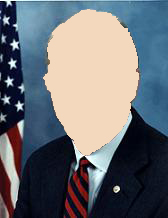Who Blocked the Whistleblower Protection Act?
Submitted by Anne Landman on
 Last January, the Government Accountability Project (GAP) and New York radio station WNYC sought help from the public to find out which senator put an anonymous secret hold on the Whistleblower Protection Enhancement Act, killing the bill at the end of the last congressional term. The bill would have assured protection for government workers who expose illegal activities, waste and corruption. It was tremendously popular with the public and had won unanimous approval in the House when a single, unnamed senator put a "secret hold" on the bill, preventing it from going to the full Senate for a vote. The Government Accountability Project vowed to conduct "a relentless search to find the politician who is a cowardly enemy of taxpayers." WNYC asked listeners to call their Senators and ask if they were responsible for the secret hold that killed this important bill. Finally GAP narrowed the field to two possibilities: either Sen. Jon Kyl (R-Arizona), or Sen. Jeff Sessions (R-Alabama). In January, the Senate voted 92-4 to change the rules governing the secret hold to make it harder to use, and GAP's project to expose the senator who used it against the Whistleblower Protection Act has made senators more hesitant to use it. It also brought new attention to the Act, which will be reintroduced in the Senate in the current session.
Last January, the Government Accountability Project (GAP) and New York radio station WNYC sought help from the public to find out which senator put an anonymous secret hold on the Whistleblower Protection Enhancement Act, killing the bill at the end of the last congressional term. The bill would have assured protection for government workers who expose illegal activities, waste and corruption. It was tremendously popular with the public and had won unanimous approval in the House when a single, unnamed senator put a "secret hold" on the bill, preventing it from going to the full Senate for a vote. The Government Accountability Project vowed to conduct "a relentless search to find the politician who is a cowardly enemy of taxpayers." WNYC asked listeners to call their Senators and ask if they were responsible for the secret hold that killed this important bill. Finally GAP narrowed the field to two possibilities: either Sen. Jon Kyl (R-Arizona), or Sen. Jeff Sessions (R-Alabama). In January, the Senate voted 92-4 to change the rules governing the secret hold to make it harder to use, and GAP's project to expose the senator who used it against the Whistleblower Protection Act has made senators more hesitant to use it. It also brought new attention to the Act, which will be reintroduced in the Senate in the current session.

 Since you likely don't pay as much attention to the behavior of insurance companies as I do, you probably are not aware that
Since you likely don't pay as much attention to the behavior of insurance companies as I do, you probably are not aware that